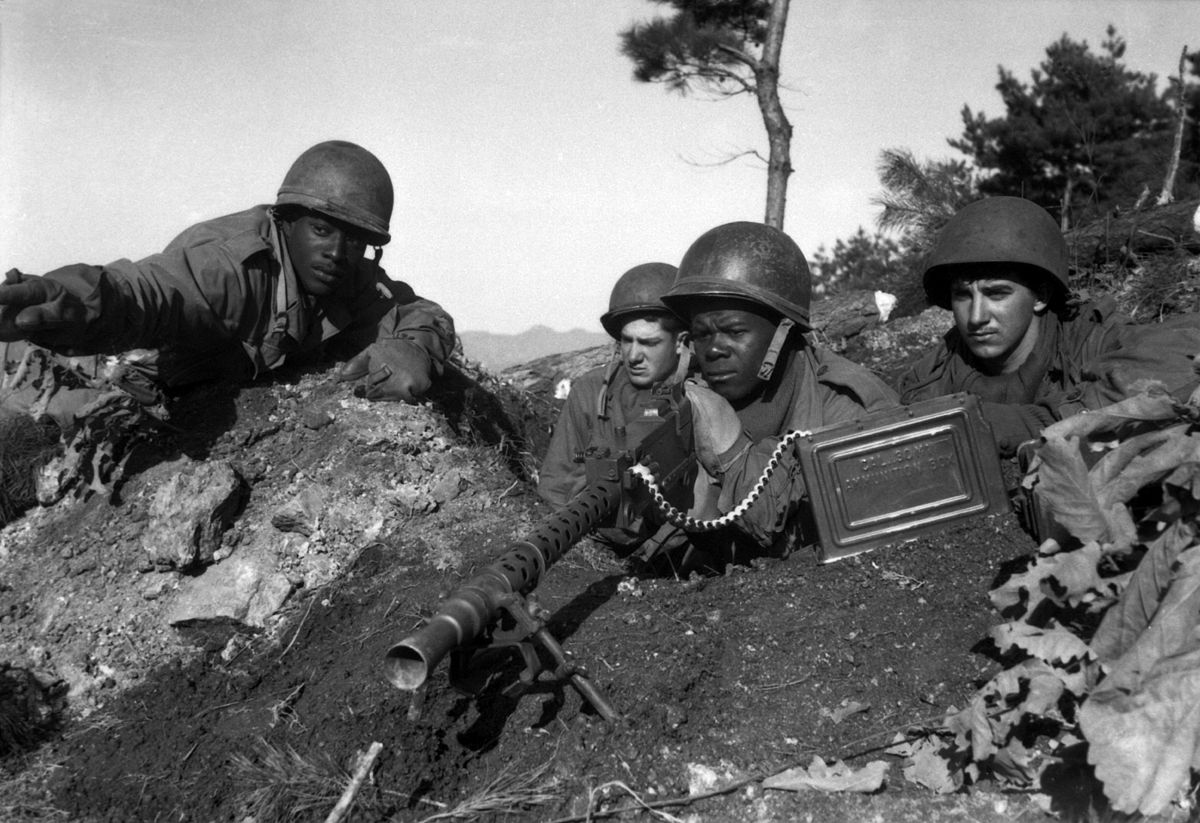The Korean War, which broke out in June 1950, was in some measure a Soviet-sponsored operation, although the Soviets contributed only support and sympathy and allowed their Chinese ally to take the military lead.
Korea had been a target of Soviet interest in the late nineteenth and early twentieth centuries, but the Japanese triumph over the Russians in 1905 had led instead to Japanese annexation of the country in 1910.
In 1945 Soviet troops occupied the northern part of Korea and American troops the southern part. The country was divided in the middle by a line along the 38th parallel of latitude. A communist-inspired People’s Democratic Republic of Korea was set up in the north and an American inspired Republic of Korea in the south. When all American forces except for a few specialists were withdrawn from South Korea, the North Koreans marched south to unite the nation under communist control.
The communists may have thought the operation would go unchallenged. But when the invasion began, the United Nations moved troops into Korea. Under General Douglas MacArthur, the largely American force halted the North Korean drive and pushed the enemy back almost to the frontier of China.
At this point troops from the People’s Republic of China (PRC) joined the North Koreans in pushing the Americans southward again. By 1951 the line of battle had been stabilized roughly along the old boundary between North and South Korea. After prolonged negotiations, an armistice was finally concluded in July 1953.
The Korean settlement did not end the tension between Communist China and the United States, and serious friction developed over Taiwan (Formosa) and smaller offshore islands in the hands of Chiang Kai-shek. Nor did the Korean settlement bring a closer understanding between the Soviet Union and the United States.
It was at best a compromise. After all the fighting, the United States had managed to hold on to the devastated southern portion of the country, and the communists had been driven back to the north, which they governed undisturbed. Neither side could call it a victory.
By the time the Korean War ended, Stalin had been dead for more than three months. Stalin’s heirs realized that any attack that threatened the vital interests of the United States might well touch off the ultimate disaster.
To relax the tension would raise the danger that the Soviet Union would lose its position as leader of the world communist movement. In the end it proved to be impossible for the Soviet leadership to hold these threats in balance, and the choices they felt forced to make led to a major split in the communist world.

